The Civil Society Monitor is a unique source of English-language information on the current state of Japan’s nonprofit sector. It seeks to link Japan’s nonprofit sector with the international community by reporting on current events and noteworthy activities and organizations in Japan’s emerging civil society.
Tadashi Yamamoto
President, Japan Center for International Exchange
The tragic Great Hanshin Earthquake that demolished Kobe in January 1995 may be regarded as a watershed event for the development of a civil society in Japan. Indeed, the outpouring of volunteersestimated at more than 1.3 million people from across the nationand the dedicated and impressive efforts of nonprofit organizations (NPOs) did much to increase attention among Japan’s government officials, political and business leaders, and mass media on the role of nonprofit and nongovernmental organizations.
As a result, some observers in Japan and abroad regard Kobe as the genesis of Japan’s nonprofit sector. This judgment, however, is mistaken because Japan’s voluntary sector showed significant growth even before the earthquake. In fact, a number of organizations had been particularly active in such areas as nursing care for the elderly, support for foreign workers, and environmental protection.
In the aftermath of the earthquake, it became increasingly apparent that government agencies alone were unable to respond effectively to the public’s needs and that nonprofit organizations and volunteer activities could fill the widening space now open for the third-sector activities. The extensive media coverage of volunteer and NPO activities in Kobe fueled a spirited discussion on the limitations of the government’s role not only in times of natural disaster but also in many other areas of society both domestically and internationally.
The sudden awareness in Japan concerning the role of volunteers and NPOs resulted in several initiatives aimed at encouraging the development of such organizations. These initiatives, in turn, intensified the debate on the role of civil society organizations in Japan and how to foster their growth.
This debate has prompted an examination of obstacles to the full-fledged growth of NPOs and nongovernmental organizations (NGOs). Two fundamental issues at the center of this discussion are (1) the process of incorporation of NPOs and (2) the lack of adequate tax incentives for financial contributions to NPOs. These two points reflect the larger issue currently at the heart of the entire NPO debate: the public sector’s control of civil society organizations.
The Government Response
During a Diet session in February 1995, the chief cabinet secretary of the ruling coalition indicated the government’s intent to undertake a comprehensive study on measures to further encourage volunteer activities and NPOs. As the first stage, the Liaison Committee for Related Government Ministries and Agencies Regarding Volunteer Activities, which consisted of representatives from eighteen government ministries and agencies, was established to explore possible legislative proposals. Almost simultaneously, all the major political parties started independent studies of possible effective legislation. Given the fact that most draft bills are written by civil servants, this was quite an unusual development in Japan’s legislative process.
Perhaps the most active initiative was taken by the New Party Sakigake, which includes several former leaders of NPOs and volunteer groups as well as members who helped with the rescue work in Kobe. The party organized a series of study seminars to which it invited leaders from the nonprofit sector.
Shinshinto (New Progressive Party), which is the major opposition party and the Japan Communist Party prepared their own draft bills.
Activities regarding NPO legislation among government bureaucrats and political parties have been followed closely by the local media. Over the past year and a half, several major newspapers have frequently featured editorials and analytical articles. For the first time in Japanese history, vigorous debate was taking place over the role of NPOs and how to encourage their development.
NPO Response
From the outset of their exploratory efforts, the respective government agencies and political parties sought information and advice from leaders of the nonprofit sector. The Japan Center for International Exchange (JCIE) was asked to organize a series of briefing seminars by NPO leaders for Sakigake’s Diet members and staff. We were also asked by the government’s Liaison Committee to provide briefing and documentation on volunteerism and the nonprofit sector in other countries. A dissemination seminar of the Johns Hopkins Comparative Nonprofit Sector Project, which by coincidence had been scheduled immediately after the Kobe earthquake, attracted a large number of representatives from government agencies, political parties, the media, and NPOs. Clearly, the leaders of Japan’s nonprofit sector experienced a unique and unprecedented opportunity to have their views heard by those directly involved in the legislative processes.
Among several groups of NPO leaders and activists whose views are known to political parties, government agencies, and the media, the most active and well-organized group is a voluntary organization known as C’s (Coalition for Legislation to Support Citizens’ Organizations). Led by a group of emerging leaders of the nonprofit sector, such as Michio Ito, executive director of the Japanese NPO Center for International Cooperation, Yoshinori Yamaoka, former program officer of the Toyota Foundation, and Akira Matsubara, who serves as full-time secretary of the group, C’s has mobilized many NPO leaders around the nation in an effort to exert influence on the legislative process.
The group has been particularly active in reviewing the diverse legislative proposals, voicing its views to the political parties and government agencies, organizing frequent media briefings, and even drafting its own legislative proposal. Without the efforts of C’s, the many diverse NPOs could not have come together in the attempt to advance their cause.
A Legislative Impasse and Future Agenda
Although it was generally expected that an NPO bill would be debated and passed during the Diet session this spring, no bill was introduced on the Diet floor prior to the summer recess in early July. One of the primary reasons for this was disagreements among the ruling coalition parties on some of the bill’s key provisions. In addition, a log-jam of legislative activity on other important issues such as the jusen housing and loan crisis bailout caused a delay in debate on the NPO proposals. More important, however, fundamental differences of opinion over the relationship between the public sector and the nonprofit sector existed among those politicians, government bureaucrats, media representatives, and NPO leaders who had been most active in pushing for legislative initiatives to encourage the further development of civil society in Japan.
Government bureaucrats have successfully lobbied political parties on the need for government agencies to retain rigid control over (1) the incorporation process of nonprofit organizations and (2) the designation of organizations that would qualify to receive tax deductible contributions. As a result, some of the legislative draft proposals suggested excluding organizations that make policy proposals from being granted nonprofit status. Other proposals listed several areas of public-interest activities that would qualify for incorporated status while leaving the decision of whether unlisted areas of activity would be recognized as public-interest to the discretion of government agencies.
The ongoing debate has resulted in a variety of reactions from within the nonprofit community. While some NPO leaders support any new legislation that will help voluntary organizations not now possessing legal status, others advocate a more detailed and in-depth discussion on the role of civil society and its relationship with the public sector. Still, others feel that the debate over the legislative initiatives has been focused too narrowly on the role of volunteers and should be expanded to cover the roles of private research institutions, organized philanthropies, and professionally run NPOs.
Despite no NPO bill having been passed yet, the vibrant national debate—the first of its kind in Japan—over the nation’s civil society is encouraging. It is also encouraging to see that a number of dynamic leaders from the nonprofit sector have taken the lead in this debate. To ensure that the current debate on NPOs continues and is strengthened by additional research and information exchange, the establishment of the NPO Center of Japan was proposed by a group of NPO-sector and corporate leaders. The center will also aim to strengthen civil society organizations by facilitating staff training and corporate funding for NPOs.
In keeping pace with the advancements of a “global associational revolution,” Japan seems ready to embark on a new phase in the development of its own civil society. The dynamic interactions of diverse actors in pursuit of full-fledged growth of the nonprofit sector in Japan are likely to unfold in the coming months. As has been the case before, close cooperation with institutions and individuals overseas who share a belief in the vital and indispensable role of civil society will be crucial for those in Japan who are involved in such efforts.
Note: There is general confusion in Japan regarding the semantic meaning for the terms used for nonprofit and nongovernmental organizations. The term NGO has been used in reference to nonprofit organizations active in overseas programs such as development assistance and global environmental issues. Hence the term NPO has come to be used in Japan in recent months to encompass nonprofit organizations engaged in domestic as well as external activities.
From September 21-26, Keidanren (Japan Federation of Economic Organizations) will dispatch a study mission to the United States to examine how American corporations provide support for nonprofit organizations (NPOs). While previous study groups to the United States have explored such general subjects as corporate social responsibility or corporate philanthropy, this mission will be the first to focus on a specific issue: how to enhance the activities of nonprofit and nongovernmental organizations.
The study mission will be headed by Mr. Yasuyuki Wakahara, chairman of the One Percent Club of Keidanren and chairman of the Asahi Mutual Life Insurance Co. Members of the delegation are affiliated with such major corporations as Toyota Motor Corp., Nissan Motor Corp., Mitsubishi Corp., NEC, and IBM Japan.
The study mission has also been assigned the special task of exploring the feasibility of establishing the NPO Resource Center in Japan. This plan has been promoted by a group of nonprofit and corporate leaders since December 1995 in response to a growing awareness in Japan of the need to strengthen the nation’s nonprofit sector so it can function as an active partner of the public and business sectors in an increasingly pluralistic society. It is significant to note that although Japanese corporations have been quite generous in providing funds to major American universities and nonprofit organizations over the years, they have provided little support to Japanese NPOs in the past.
The NPO Resource Center is intended to facilitate and encourage corporate financial contributions and corporate volunteering, while also serving as an advocate of the nonprofit sector in Japan by providing advice and recommendations to national, prefectural, and local governments concerning their support for NPOs.
While in the United States, the mission will meet with leaders of NPO organizations, corporations actively engaged in partnerships with NPOs, and intermediary organizations facilitating corporate support for NPOs. The mission will also visit community development projects, including one in the South Bronx in New York City where corporate support has played a critical role in the community. A concurrent study mission of NPO sector leaders consisting mostly of members of the planning committee for the establishment of the NPO Resource Center will join the Keidanren mission for several meetings in both Washington, D.C., and New York.
Emerging Civil Society in the Asia Pacific Community received the 1996 Special Award of the Masayoshi Ohira Memorial Foundation. The book, which contains reports on fifteen Asia Pacific countries by specialists from throughout the world, describes the activities of research institutions, foundations, and nongovernmental organizations currently operating in Asia Pacific. The book is being translated into Japanese and Vietnamese.
JCIE’s President Tadashi Yamamoto, who served as the book’s editor, received the prize at the awards ceremony held on June 12, 1996, at the Hotel Okura in Tokyo.



